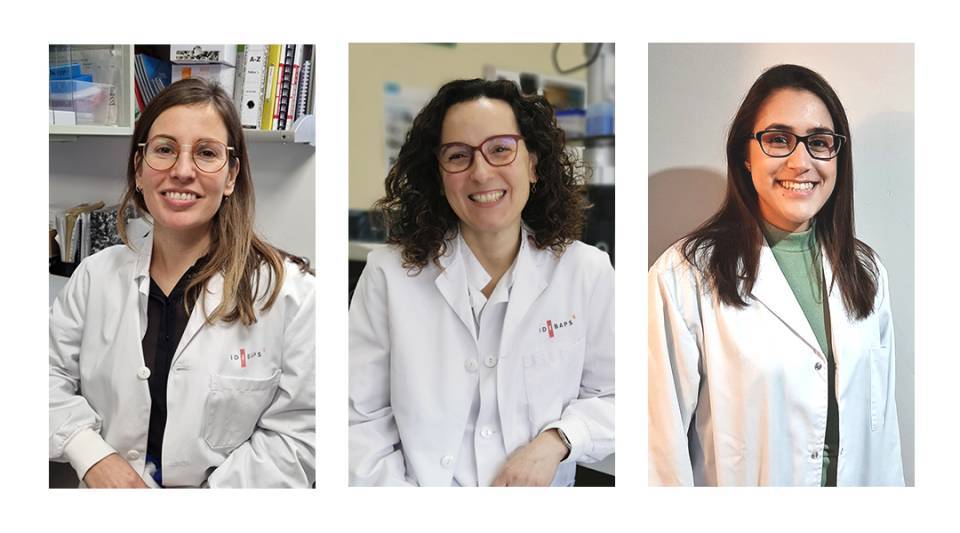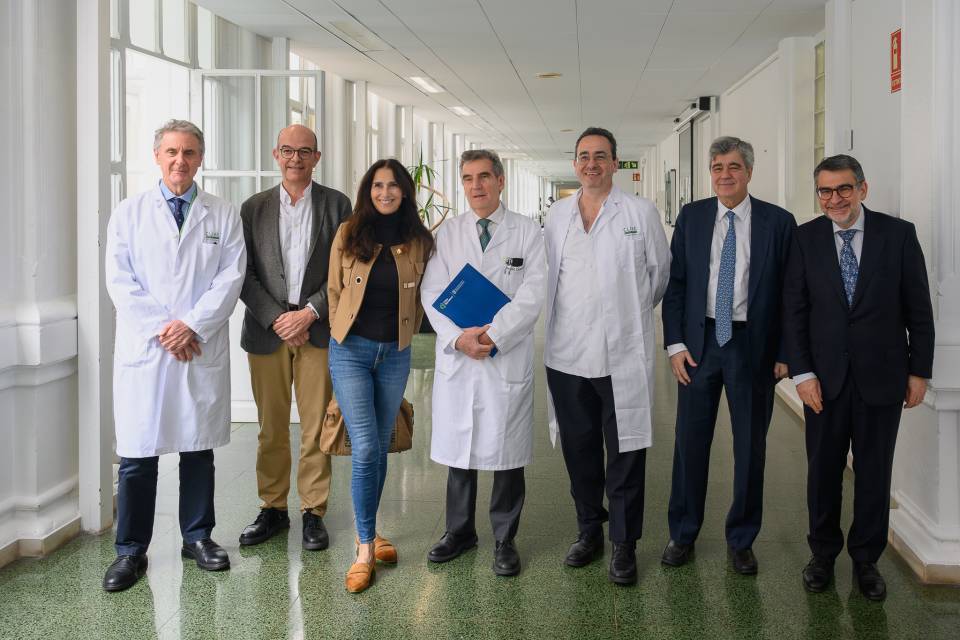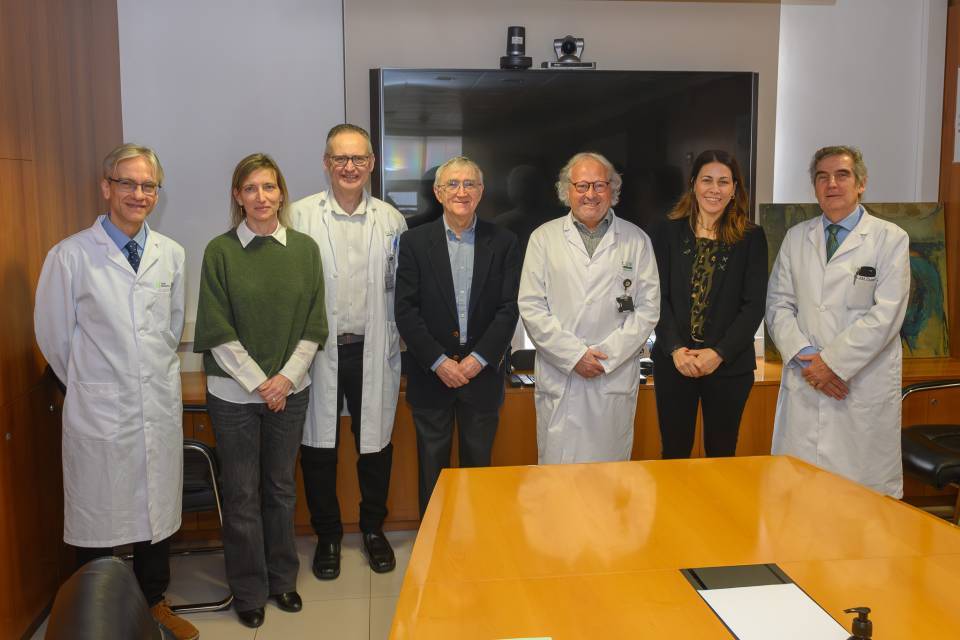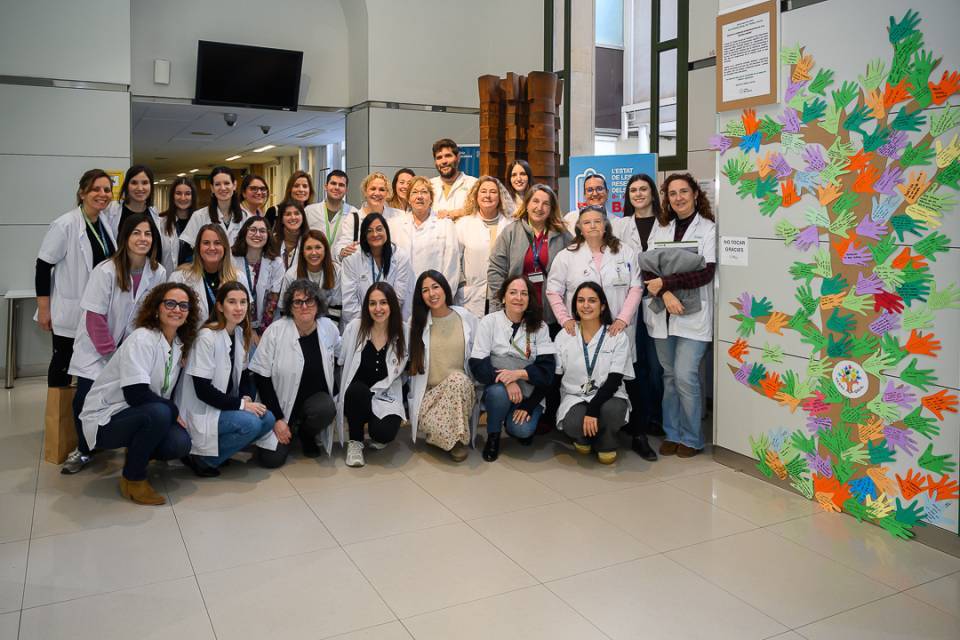Fara Brasó-Maristany, Sofía Pérez del Pulgar and Ana Martínez feature in the new edition of the “Female talent, scientists speak” campaign, which began in 2019 and will resume in 2023. A postdoctoral researcher in the Translational genomics and targeted therapies in solid tumours group led by Aleix Prat, Brasó-Maristany focuses her research on breast cancer, while Pérez del Pulgar, an accredited CIBER researcher in the Viral, genetic and immune-mediated liver diseases group led by Xavier Forns, and Ana Martínez, a predoctoral researcher in the Liver vascular biology group led by Jordi Gràcia-Sancho, study liver diseases.
Brasó-Maristany showed an interest in science from an early age. “This led me to study biotechnology and to devote myself professionally to this job, where you learn new things every day, which motivates me a lot”, she says. Pérez del Pulgar heard the call a little later: “I started studying chemistry in secondary school. This opened the door for me to the fascinating world of chemical reactions, molecular structures and atoms, and I followed that path at university”. Martínez has always wanted to help to improve one of the aspects of people’s lives that she considers the most important: their health.
Women account for 62% of IDIBAPS’ research staff. “Most of the research students were women and there is also a clear female majority in our laboratory. However, as we move up the ranks in our scientific careers, the positions of responsibility are occupied by men”, Brasó-Maristany says. According to her, motherhood is one of the causes for this trend, since dedication to family and childcare can negatively affect scientists’ career paths. Her opinion is shared by Pérez del Pulgar: “A research career is a cross-country race. It involves many hours of dedication, travel, conferences, trips abroad and teaching, which makes it hard to strike a work-life balance. This prompts many women to decide that it may not be the path that suits them best”. Patriarchal culture and the stereotype that science is a man’s sphere also stand out as barriers that women face to access leadership positions. “There is a kind of vicious circle. There are still prejudices that women may not fit into science. At the same time, there is a lack of female scientists in decision-making positions, who are figures of influence. All this helps to uphold the bias”, Martínez says.
None of the three researchers has clearly experienced discrimination first-hand for being a woman. “I’ve been very lucky”, Martínez says. “Although this word ‘luck’ might be the problem. I shouldn’t have to use it, because there should be no differences between men and women. All female researchers should experience the respect that I have so far”. Brasó-Maristany adds: “It may seem anecdotal, but there are times when, because you are a woman and young, other researchers do not give you credit and prefer to discuss a result with your boss. And by that, I mean a man. This happens to us more than to them, and it invalidates us”. Pérez del Pulgar says: “Apart from sexist comments and prejudice, I have sometimes had to deal with my work being undervalued because I am a woman, while my male colleagues’ work was valued positively. However, I must point out that the three times I have changed labs have coincided with my three pregnancies and my candidacy for the new position was never affected by my condition, which was obvious. I did nothing to hide it”.
Although the situation of women in science is improving little by little, there is still work to be done. Brasó-Maristany and Martínez agree that there must be more legal action and legislation, such as “aid and scholarships that help women to keep from getting left behind, as well as plans allowing for better work-life balance. In addition, men need to be made aware, so they see these developments as something positive and necessary to make research a more equal world. We don’t want them to perceive it as positive discrimination for women”. Boosting the public image of female researchers, making society aware of the obstacles they face, and raising awareness about inequalities are other solutions they propose.
Brasó-Maristany, Pérez del Pulgar and Martínez see the future with optimism and hope. They believe that the new generations of scientists will mark a turning point in terms of equality, equity, and justice. “Research is exciting. It helps us to have a very positive impact on people’s lives, improving their health and quality of life. We encourage young researchers not to give up, to persevere, to fight and to pursue their dreams, because it is fully worth it”. We need more women and more voices to amplify this message, so it is heard loud and clear.
This activity, organised by the IDIBAPS UCC+I, is supported by FECYT.




